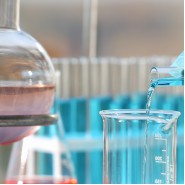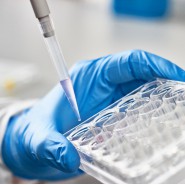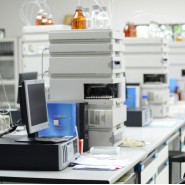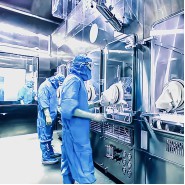Creative Peptides has been committed to custom peptide services and high quality products. With our expertise and advanced manufacturing facilities, we are passionate and confident in the development and production of peptide APIs, accelerating our global customers' drug discovery through our API development services, as well as providing high quality industrial scale products for viable projects.
Peptides are present in all living organisms and play a key role in a variety of biological activities. Peptides have the inherent ability to block or enhance signaling in the body. When used as active pharmaceutical ingredients (APIs), peptides can treat various diseases such as metabolic diseases, tumors, cardiovascular and cardiac diseases, and neurodegenerative disorders.
The development of peptide APIs involves multiple peptide synthesis methods and requires state-of-the-art downstream processing (DSP) technologies to optimize peptide production and scale up to meet a wide range of customer needs. The key to mass production of peptide APIs is to achieve efficient conversion at each amino acid coupling to simplify the need for downstream purification, and to optimize process development to produce high purity custom peptides.
Peptide APIs have a variety of important applications in biochemistry, molecular biology, immunology and medicine, including peptide vaccines, tumor-targeting peptides, peptide ligands, cell-penetrating peptides, protein mimetics, and peptide supplements.
Common methods for chemical synthesis of peptide APIs include solid-phase peptide synthesis (SPPS), liquid-phase peptide synthesis (LPPS), and fragment condensation. In addition, some peptide APIs are derived from microbial metabolism of active ingredients that can be produced by microbial fermentation through bioengineering technology.
Protected amino acid derivatives (e.g. Fmoc-, t-Boc-) are added successively to the growing peptide chain immobilized on the solid phase (resin), undergoing deprotection and washing steps to remove unreacted groups and by-products. The advantages of SPPS are easy purification, generation of long sequences of peptides, cost-effectiveness, and feasibility of a fully automated production process.
LPPS is used in the industrial production of peptides, allowing large-scale production of peptides and reducing the use of excess solvents, in line with the principles of green chemistry. LPPS has the advantage of allowing the deprotection and purification of intermediates and is commonly used in the synthesis of short peptides.
The fragment condensation method is an attractive option for synthesis of long peptides. Short fragments of the desired peptide are synthesized and then coupled together to form a long peptide.
Natural products from plants or microorganisms are a rich source of APIs. Naturally occurring antimicrobial peptides (AMPs) have attracted a lot of attention as potential antibiotics. The use of microbial cells as hosts for the production of bioactive peptides is a promising approach.




Peptide APIs are active pharmaceutical ingredients derived from peptides, which play a crucial role in various biological processes. They are used in treatments for diseases like cancer, cardiovascular disorders, and neurodegenerative conditions. Peptides are effective at modulating biological signaling pathways, offering targeted therapeutic effects.
Peptide APIs can be synthesized using various methods, including solid-phase peptide synthesis (SPPS), liquid-phase peptide synthesis (LPPS), and fragment condensation. Additionally, microbial fermentation is used to produce natural peptides, offering a sustainable approach for peptide API development.
SPPS involves successively adding protected amino acid derivatives to a growing peptide chain immobilized on a solid resin. This method allows for easy purification, generation of long peptide sequences, and cost-effective automated production, making it suitable for large-scale peptide synthesis.
Microbial fermentation leverages microorganisms to produce bioactive peptides naturally, such as antimicrobial peptides. This process is an eco-friendly and scalable method for producing high-quality peptide APIs that can be used in pharmaceutical applications.
Peptide API development involves rigorous quality control, including impurity studies (such as diastereoisomers and other relevant impurities), structure validation (primary, secondary, tertiary, and quaternary structures), and stability testing. All production processes follow stringent quality management practices to ensure the highest purity and consistency.
Creative Peptides offers optimized synthesis methods and downstream processing, with a focus on cost efficiency and high yield. Our process automation, large-scale production capabilities, and rigorous quality control ensure consistent, high-quality peptide APIs that meet the specific needs of our clients.
We have the capacity for large-scale peptide API production, capable of handling hundreds of kilograms of peptide APIs. Our advanced process technologies ensure consistent batch-to-batch quality, and we implement strict controls on all process parameters for optimal production.
